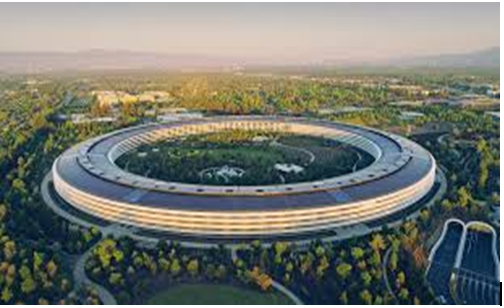INP-WealthPk
Muhammad Luqman
LAHORE, March 27 (INP-WealthPK) – The Punjab government has launched an ambitious plan to develop an IT city in Lahore over an area of 800 acres to turn the city into a technology and innovation hub. “The flagship project is designed to meet the growing demand for tech-oriented spaces and to position Punjab, especially Lahore, as a leader in the global IT and tech sectors,” Imran Amin, Chief Executive Officer (CEO) of Punjab Central Business District Development Authority, told WealthPK.

The IT cluster, named Nawaz Sharif Information Technology City (NSIT City), is divided into three distinct districts: the IT District, the Education District, and Pakistan’s first Film City. The IT District has been designed to accommodate tech companies, software houses, and innovative startups, while the Education District will host world-class universities and institutions to foster a new generation of skilled professionals.
The Film City will provide state-of-the-art facilities for film production, attracting international filmmakers and boosting Pakistan’s creative industries. The launch of Silicon Block and Astra in CBD NSIT City has already generated an overwhelming interest from the investor community. These developments are part of the larger vision to create a thriving ecosystem for the IT companies and tech startups in Pakistan.
“As a key part of this transformation, the Celestia IT Tower, a 19-floor office building with four basements and a ground floor, is under construction, marking the beginning of a new era for IT infrastructure in Pakistan,” the PCBDDA chief said. He said Pakistan will get its first e-commerce platform and set up a data and cloud center with Chinese assistance, backed by a confirmed $700 million investment in the region. This investment will also support the creation of a computing center in Nawaz Sharif IT City. Pakistan has lately witnessed encouraging growth in the startup sector despite a tumultuous economy and an uncertain socio-political scenario.
The startup boom took root in Pakistan in 2012 followed by the rapid emergence of numerous start-ups. New companies have expanded into many fields of business, including but not limited to retail services, technology, and education. The startups have boosted the creativity and innovative potential of Millennials and Gen Z by offering new opportunities to explore and achieve financial independence. With the help of government initiatives, entrepreneurs have gained a lot of support in nurturing a conducive environment for start-ups.
“We are hopeful that the development of the IT city will serve as a leapfrog initiative, with an ultimate objective to have Pakistan’s much-dreamed Silicon Valley,” Imran Amin said. However, IT sector entrepreneurs believe that developing infrastructure alone is not enough; the government must also offer incentives, as seen in the US and India, to drive growth in the sector.
“A 10-year tax exemption can accelerate digital transformation, boost investor confidence and position Pakistan as a leading IT hub,“ said Sajjad Mustafa Syed, Chairman of the Pakistan Software Houses Association (PASHA), in an interview with WealthPK. He said uninterrupted internet and a steady supply of skilled graduates from technology universities are essential to transforming any Pakistani city into a Silicon Valley.
The PASHA chief said the Final Tax Regime (FTR) for IT and ITeS exports should be restored for the next decade (2025–2035) to ensure predictability, continuity and investor confidence, as the IT industry is currently attracting major investments, witnessing operational expansion and achieving regional diversification in the export markets.
He hoped that the establishment of NSIT City coupled with government incentives will help Pakistan’s IT sector catch up with other countries. “With only $2.5 billion in IT exports against India’s $250 billion, we are far away from our goals. However, with concerted efforts, we can significantly boost IT exports,” Mustafa said.
Credit: INP-WealthPk



